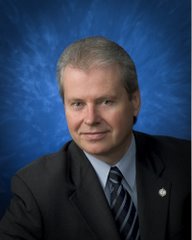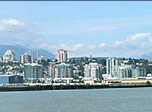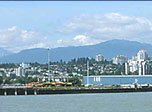Canada is a big NATO 'fail'
Julianne Smith, US Ambassador to NATO,
calls out Canada's Trudeau government for not only not reaching its NATO
spending commitment, but not even having a plan to do so.
Canada is the only NATO member without a
timeline to reach the alliance's target of spending 2% of GDP on defense. This, according to the US ambassador to the
North Atlantic Treaty Organization (NATO).
Julianne Smith calls out Trudeau and says
Canada needs to step up and get serious about reaching the spending goal that we
promised, of 2% of GDP for general military spending, to ensure that Canada is
a fully-functioning partner in NATO. All
other 30 countries have either met the promise or have tabled clear plans to
get there. The outlier — the only one —
is the Trudeau administration.
This prime minister's lack of a plan or
even a plan to have a plan, reveals a profound and distressing lack of the
commitment that our allies want to see. “We
very much want our friends in Canada to keep moving towards the 2% target, but
most importantly, we want them to lay out a plan to get there.” Smith added that it is important to recognize
that collective security is not free and it requires everyone to “make tough
choices.” A clear timeline shows intent.
“Just saying in more broad terms that
you're working towards it, lacks the commitment that we want to see on the part
of our friends in Canada.” She
recognizes Canada's recent spending announcements — including increasing
funding for NORAD, plans to purchase F-35 fighter jets and an increased
presence in Latvia — “but inching just above 1.3% is a long way from 2%."
“Every single member of this alliance has
its own domestic politics,” Smith said. “It has its own history. It has its own complicated relationship
between the finance minister and the defense minister. We all face unique challenges in this area of
defense spending."
Julianne Smith is an American foreign
policy advisor and diplomat who serves as the United States Permanent
Ambassador to NATO in the Biden administration. She previously served as deputy national
security advisor to then-Vice President Biden in the Obama administration.
NATO members signed on more than a decade
ago to spend at least 2% of their GDP on defense. Last summer, at the alliance’s annual meeting,
members increased that commitment to have the 2% become a minimum requirement.
And earlier this month, NATO Secretary
General Jens Stoltenberg said that of the alliance's 31 members, 18 will reach
or exceed the defense spending target this year. By inference, Canada is the
laggard. The NATO secretary-general
expects Canada to give a timeline to meet the defense spending target.
NATO, also called the North Atlantic
Alliance, is a military alliance of 31 member states — 29 European and two
North American. Established in the
aftermath of the Second World War, the organization implemented the North
Atlantic Treaty, on April 4, 1949.
NATO is a collective security system: its
independent member countries agree to defend each other against attacks by
third parties. During the Cold War, NATO
operated as a check on the threat posed by the Soviet Union. The alliance remained in place after the
dissolution of the Soviet Union and the Warsaw Pact and has been involved in
military operations in the Balkans, the Middle East, South Asia and
Africa. The organization's motto is
animus in consulendo liber (Latin for 'a mind unfettered in deliberation').
Article 5 of the North Atlantic Treaty
requires NATO members to come to the military aid of any member subject to an
armed attack. It was invoked for the
first time after the September 11 twin-tower attacks, after which troops were
deployed to Afghanistan under the NATO-led ISAF. The organization has operated a range of
additional roles since then, including sending trainers to Iraq, assisting in
counter-piracy operations and in 2011, enforcing a no-fly zone over Libya by a
UN Security Council Resolution. There
has been a reinvigoration of attention to NATO since the Russian invasion of
Ukraine.
Despite nice-sounding reassurances from
Canada that we will eventually get there, NATO membership is not an “A La Carte
Menu.” Canada has never met its promised
target of 2% spending of our national Gross Domestic Product. Such a measure is a partnership commitment
based on the ability to pay.
Trudeau claims they are increasing help to
Ukraine but the numbers don't reflect it. Ukraine needs more outside help. They are fighting for us, as every Western
democracy is affronted by Putin's view of the world.
In most basic terms, it is a horrible
bloody contest between the expansion of dictatorship against free independent
democracy. The lesson is that Canada
needs to raise defense spending, as NATO members warn, “never take peace for
granted.” Putin must understand, that he
is never going to eliminate Ukraine and the security of Europe is the theme.
We are being called out by our allies. We have deep internal problems of things to
fix. Canada seems unprepared in a
changing world. For example, we should
improve and enlarge our navy because of our vast coasts. NORAD needs technology upgrades. North American Aerospace Defense Command is a
combined organization of the US and Canada that provides aerospace warning, air
sovereignty and protection for Canada and the continental United States.
Canada's problem is political leadership. Our other social priorities are only viable if
we are safe. Canada is a member of the G7. Canada is the second largest landmass country
in the world with a vast coastline, so it matters what Canada does.
During a press conference, Prime Minister
Justin Trudeau responded to Stoltenberg’s comments, saying Canada will
“continue to put forward our budgets and our proposals at the appropriate
time.”
“We will continue to be there to step up
with our NATO partners," he said, without specifying whether the federal
government has a timeline in mind to meet the spending promise.
Despite denials, Canada has stopped issuing
export permits to companies looking to sell military equipment to Israel,
according to John Ivison of the National Post. Apparently, Foreign Affairs
Minister Mélanie Joly's office has issued instructions to the staff at Global
Affairs Canada to delay issuing permits that are required for weapons, firearms
and components that could have military use.
Concerning sending Canadian funds into a
war zone, from documents and identity cards seized during the fighting, about
190 Hamas and PIJ (Palestinian Islamic Jihad) terrorist operatives served as
the United Nations Relief and Works Agency for Palestine Refugees in the Near
East (UNRWA) employees.
More than 10 UNRWA staffers took part in
the attack on October 7. The UNRWA is a
UN agency that supports the relief of Palestinian refugees. When the allegations were made, Canada
suspended its funding, and then soon reinstated it.
Canada sent another $40 million in aid to
organizations in the Gaza Strip after pausing funding to the UN's relief
agency. The funding top-up brings the
total commitment to $100 million and condemns "inflammatory rhetoric"
from the Israeli government about UNRWA people attacking Israel.
It appears more of saying one thing and
doing another. Trudeau says we support
NATO and efforts in Ukraine, but the real numbers are not there. We support Israel to defend itself, then work
at cross-purpose behind the scenes.
Does this government have any sense of
honour to fulfill our promises to our allies?










No comments:
Post a Comment